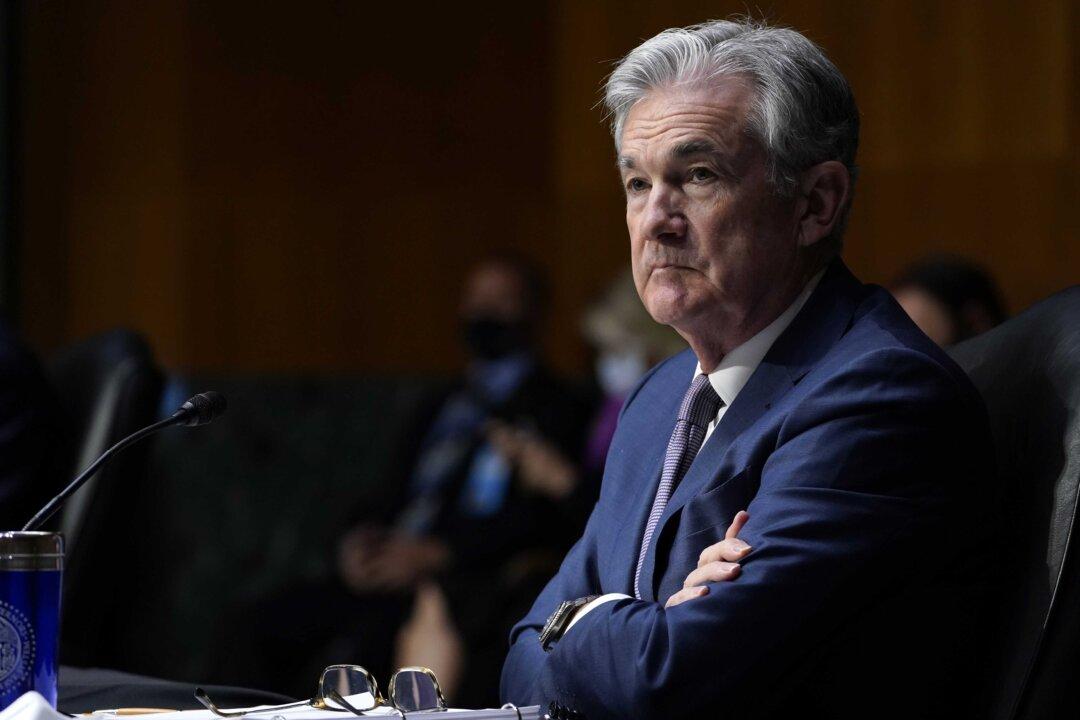WASHINGTON—Federal Reserve Chair Jerome Powell on April 14 pushed back on warnings about a rising federal budget deficit and national debt due to an aggressive fiscal response to the pandemic and said the “current level of the debt is very sustainable.”
“There’s no question of our ability to service and issue that debt for the foreseeable future,” he said during a virtual interview hosted by the Economic Club of Washington, D.C.





